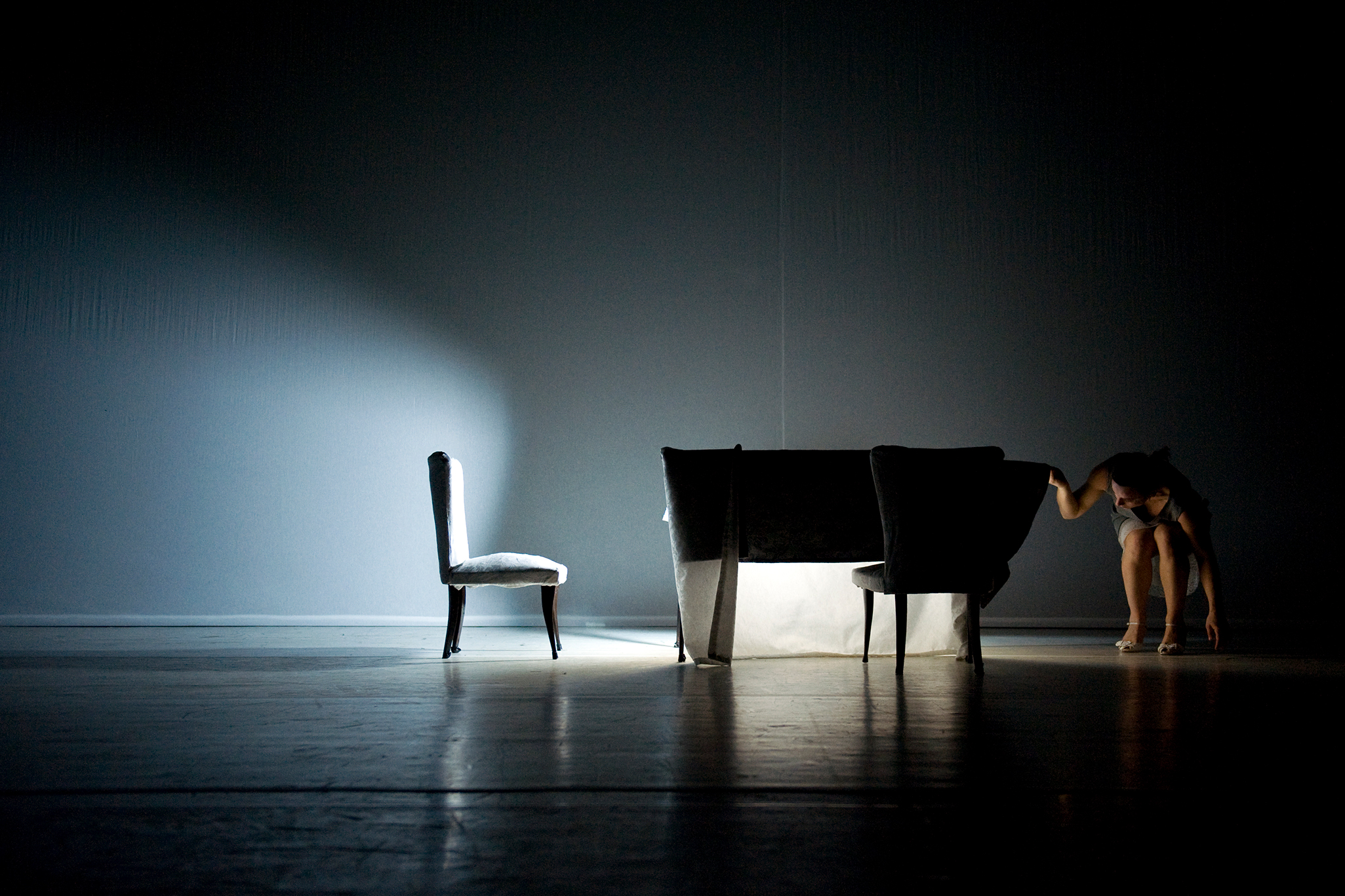“I like to remember things my own way. How I remember them, not necessarily the way they happened“.
(David Lynch, “Lost Highway”, 1997).
A discourse on carnality understood as movement without interruption—belly, back… A dance that takes shape in becoming, moving toward a forceful and disarming existence of being.
Nanou’s journey tells of an intention to merge space, sound, words, and movement, transforming them into a blend of sensations where individual elements contaminate one another, constantly becoming something other than themselves, giving life to a dense and personal scenic writing. The aim is to fuse these three elements so that they become a vehicle for vision, so they transform and erode reality, appearing and disappearing.
The expression of the face as a linguistic form, akin to the construction of movement in dance or theater—body, gaze… the dynamics of the body, gestures placed in space. The necessity of working without technical knowledge in order to then use any technique is the core of their dance practice, seeking absolute expression through movements that are always intense and mesmerizing.
A discourse on carnality, a strong design of envisioned and experienced figures—something not necessarily present or visible, but perceptible. An intense relationship with one’s own body and that of the other, through dialogues and powerful sensations, is the essence of Nanou’s dance storytelling.
“Flesh-colored and words to a place in constant transformation. A doing in order not to remain trapped in an image. A tension toward projecting oneself beyond one’s own limits, beyond the boundaries of the body (and of one’s solitude).”Motel“Motel” is the performance by Nanou, on stage on July 29 and 30 as part of the DRODESERA FIES festival. Created and performed by Marco Valerio Amico and Rhuena Bracci, with sound by Roberto Rettura, light design by Fabio Sajiz, and concept feat. Robert Rebotti (Jacklamotta).
The Motel project is a trilogy divided into rooms: ordinary stories, stories of madness, stories of family. Relationships built on immense misunderstandings, confined within the small room of a motel.
In “Motel” – Personal Affairs first roomThe drama is never present on stage. Events unfold through everyday movements—everything happens inside, never outside. Restlessness is felt in the silence of the moment. A noise without noise: an internal sound that digs into us, pushing us from one point to another in our lives without resolution, always searching for something in a familiar place that has long been uninhabited.
Motel is the room of secrets, of lovers, of prostitutes, the refuge of murderers, the stopover for travelers. The story is always outside the window, the story is above our heads—a real image and an imaginary one. Relationships built on misunderstandings and falsehoods, bound by a relentless continuity. Criminal relationships marked by the inability to muster the courage to approach the other, creating only distance and separation.
The characters and their relationships are condemned to immobility, and what happens in their alienating encounters is resolved in the very moment it occurs. Motel is the emptiness and solitude of certain relationships, of many relationships that no longer have meaning or place. It is an invitation to reflect on our anonymous daily rituals, on our habitual solitude within a reality that can never be fully grasped, trapping us in a senseless everyday existence.
On stage, a table covered by a long cloth— a hiding place, a place of magic… Roles exchanged in the dark like a children’s game. Underneath, incredible things happen: role reversals, the search for the other. Being actors of ourselves, bringing to the stage the best image of who we are, altering that image in the dark and bringing it into the light. Renouncing gesture and words, trying to reinvent ourselves each time, clinging to the illusion that everything can still happen.
